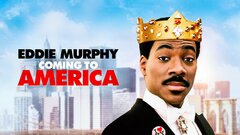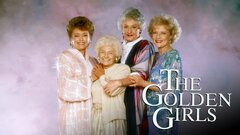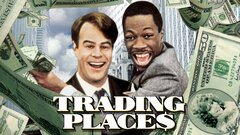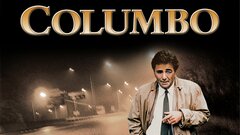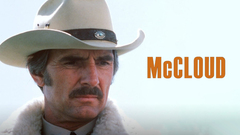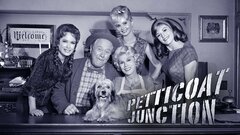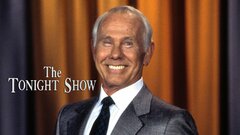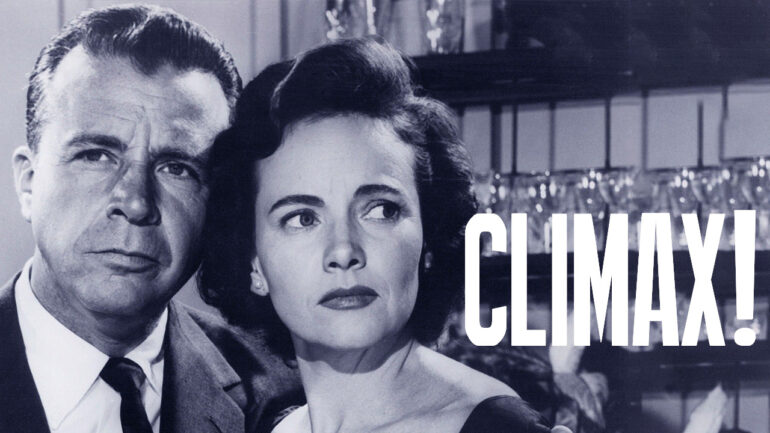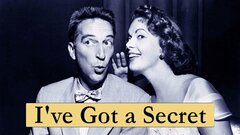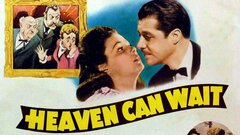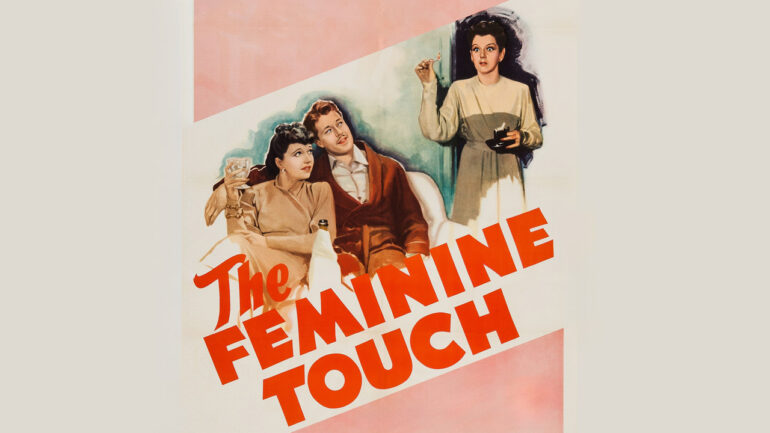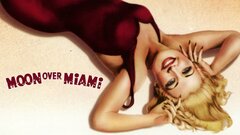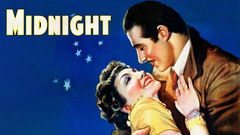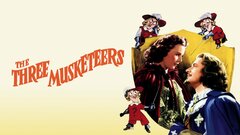With his good looks and trademark pencil thin moustache, Don Ameche specialized in musicals and comedies during the 1930s and 1940s, often cast as likeable, upper-class sophisticates. He earned his first notoriety on radio, which led to a contract with 20th Century Fox and such popular features as "In Old Chicago" (1937) and "Alexander's Ragtime Band" (1938). He achieved his pinnacle of fame with the titular part in the biography "The Story of Alexander Graham Bell" (1939), though "Midnight" (1939) and "Heaven Can Wait" (1943) were arguably his finest showcases as a comedic leading man.
Ameche's film opportunities dried up in the late 1940s, but he still managed to keep busy with a variety of television and stage assignments, and briefly reignited his career in the following decade via some Broadway successes. However, it was not until his turn as an evil billionaire in the hit comedy "Trading Places" (1983) that the now elderly actor found himself truly in demand once again. Recognition from his peers finally came via his role in Ron Howard's fantasy hit "Cocoon" (1985) for which he received an Academy Award for Best Supporting Actor. Over a career spanning more than six decades, Ameche managed to make his mark in three different mediums and weathered significant career lulls with veracity and hard work, offering three of his most indelible performances well into his golden years.
Don Ameche was born Dominic Felix Amici on May 31, 1908 in Kenosha, WI, the second of eight children. His father - who Americanized the spelling of the family name due to prejudices at the time - was a bar owner who carried a sidearm at all times and often resorted to violence when dealing with troublemakers. He was also allegedly involved in the smuggling in of Italian immigrants with the help of a deputy sheriff in their town, which gave him the power to operate with impunity. Ameche took a different course in life and opted to play basketball and cultivate his love of acting in school plays. He continued his studies at Dubuque's Columbia College, but when the Depression hit, Ameche had to put his education aside for a time in order to support his siblings. While the youth had considered the priesthood, Ameche's father hoped that he would practice law.
The young man decided to pursue the latter course, but his love of acting stayed with him and flourished while he was a student at the University of Wisconsin. After successfully stepping in at the last minute to replacement an ailing lead actor in a local staging of George Bernard Shaw's "The Devil's Disciple," Ameche abandoned law entirely so as to concentrate solely on performing. After some work on the vaudeville and summer stock circuits, he established a new career on Chicago radio beginning in 1930.
Blessed with a resonant, pleasing voice and great versatility at shaping it for different characters, he found success on a pair of dramatic programs. That resulted in an offer to work on the West Coast, where he served as host of "The Chase and Sanborn Hour," where he often found himself the butt of jokes instigated by Edgar Bergen's wooden sidekick, Charlie McCarthy.
In 1935, Ameche began a long association with 20th Century Fox. Despite a screen test that was considered less than stellar, studio head Darryl F. Zanuck detected Ameche's potential and signed him up regardless. The newcomer earned his first notable film job the following year in the drama "Sins of Man" (1936), but more distinguished productions quickly came his way. He starred alongside some of the studio's biggest stars, including Tyrone Power and Alice Faye in the smash musicals "In Old Chicago" (1937) and "Alexander's Ragtime Band" (1938), and made an appealing and energetic D'Artagnan in "The Three Musketeers" (1939). He essayed the title role in "The Story of Alexander Graham Bell" (1939) and that performance was so indelible that for years afterward, "Ameche" was a slang term for telephones, something the actor accepted with good humor.
Having proven himself critically, Ameche truly specialized in playing suave sophisticates and was usually always appealing, rarely more so than when he appeared opposite Claudette Colbert in the screwball comedy gem "Midnight" (1939), which he made while on loan out to Paramount Pictures.
A few more notable projects followed, including Ernst Lubitsch's superb fantasy-comedy-drama "Heaven Can Wait" (1943), which Ameche considered to be his favorite film. On the whole, however, his feature assignments had largely grown uninteresting and fewer in number. After starring opposite Carmen Miranda in the musical comedy "Greenwich Village" (1944), he opted to become a free agent and ended his association with Fox, despite a sizeable renewal offer. At that time, he joined with several other investors, including fellow stars Bing Crosby and Pat O'Brien and MGM studio head Louis B. Mayer in the ownership of the Los Angeles Dons, a team in the brand new All-American Football Conference.
A challenger to the established National Football League, the AAFC began play in 1946, but failed to compare in popularity and most of its teams (including the Dons) folded at the end of 1949. On a more auspicious note, Ameche's radio fame reached its pinnacle during that period, thanks to "The Bickersons" (NBC/CBS, 1946-1951). The sitcom featured him as an endlessly put-upon husband who is unable to please his shrewish wife (Frances Langford) no matter what he does. The concept of an endlessly quarreling couple was actually rather fresh at the time and the show was credited with influencing the humor and direction of television programs like "The Honeymooners" (CBS, 1955-56).
On the feature front, things were less fortuitous. Following Douglas Sirk's musical-comedy "Slightly French" (1949), Ameche's career as a leading man was over. He moved his family from California to New York and spent the next few years working mostly on television. He reteamed with his "Bickersons" co-star for "The Frances Langford-Don Ameche Show" (ABC, 1951-52), but the early daytime musical comedy program was an expensive failure. After vocal training, he made a belated Broadway debut in "Silk Stockings" (1955-56), which Ameche later counted among his career highlights.
Bolstered by this comeback, he also appeared on the Great White Way in "Holiday for Lovers" (1957) and "Goldilocks" (1958-59). The same year that the latter finished its run, Ameche joined the cast of regulars for a three-year stint on the popular game show "To Tell the Truth" (CBS, 1956-1968). He was awarded a pair of stars on the Hollywood Walk of Fame for his radio and television careers in 1960.
After a gap of more than a decade, Ameche returned to movie screens in "A Fever in the Blood" (1961) and to the character of John Bickerson for a trio of comedy albums that again reunited him with Langford. However, his main project during the early 1960s was hosting "International Showtime" (NBC, 1961-65). Among the earliest TV programs to be produced on videotape, it sent Ameche to various countries in Europe and Asia, where he would present a selection of the area's finest circus performers in action. The schlocky Bert I. Gordon horror thriller "Picture Mommy Dead" (1966) was Ameche's only other film during the 1960s and an attempt by director George Roy Hill to spin his hit comedy "The World of Henry Orient" (1964) on to Broadway with Ameche as the star failed when the revamped musical incarnation, "Henry, Sweet Henry," closed after just two months in 1967.
Aside from roles in Walt Disney's "The Boatniks" (1970), the military farce "Suppose They Gave a War and Nobody Came?" (1970) and guest star appearances on network programs, Ameche was only occasionally employed. It was rare for performers of Ameche's age to have significant third act comebacks, but he enjoyed just that, thanks to John Landis' comedy hit "Trading Places" (1983). Replacing Ray Milland - who had to drop out of the film due to health issues - Ameche was paired with fellow Golden Age star Ralph Bellamy (whom he had befriended back when they attended the University of Wisconsin five decades earlier) as billionaire siblings whose callous bet regarding the predictability of human nature leads to their financial ruin. While stars Eddie Murphy and Dan Aykroyd received much of the attention, the two veterans made for a wonderful team and added considerably to the film's humor. The movie's substantial success resulted in much renewed interest in Ameche and he joined even more veteran players in Ron Howard's fantasy/comedy "Cocoon" (1985).
As one of a group of senior citizens revivified by accidental exposure to some alien cocoons, Ameche worked wonders with the humorous and dramatic components of a script that was sometimes less than stellar. In impeccable shape for his age, he was even able to do most of the character's break dancing routine. The result was a Best Supporting Actor Academy Award and a significant comeback for the 76-year-old performer.
The Bigfoot comedy "Harry and the Hendersons" (1987) and the pedestrian sequel "Cocoon: The Return" (1988) offered Ameche few challenges, but David Mamet's "Things Change" (1988) gave the actor a plum role as a lowly cobbler who agrees to confess to a murder he did not commit in exchange for his dream possession: a fishing boat. An effective change of pace for him, the sharply written film showcased one of Ameche's most endearing performances. He made a final bow on Broadway via a short stint as a replacement performer in a new production of "Our Town" (1988-89) and he and Bellamy revived their "Trading Places" characters for cameos in Landis' "Coming to America" (1989).
Ameche also reunited with Landis for the critically reviled Sylvester Stallone comedy "Oscar" (1991) and followed that disappointment up with "Folks!" (1992), which was even more vehemently derided. Neither movie was embraced by audiences either, but it hardly mattered to the actor, who revelled in his late-career renaissance. Ameche was diagnosed with prostate cancer, but remained determined to continue working for as long as he could. He died of the disease on December 6, 1993, not long after finishing his part in the comedy-drama "Corinna, Corinna" (1994).
By John Charles






